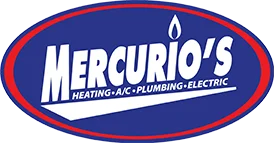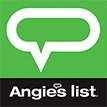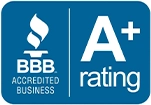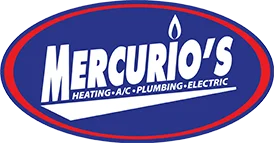AC not cooling? It can be frustrating, especially during a humid July in Olympia. As temperatures rise across Thurston County and wildfire smoke affects air quality in South Puget Sound, your air conditioner plays a critical role in keeping your home comfortable and breathable.
If your system is running but your home still feels warm, and you notice warm air coming from the vents instead of cool air, there are a few things you can check before calling a technician.
The cooling process relies on the compressor and refrigerant to remove heat from your home and generate cold air. If this process is disrupted, you may experience warm air instead of the expected cooling.
This practical guide walks Olympia homeowners through the most common AC issues, step by step, and offers guidance on when to contact a local pro for air conditioning repair in Olympia.
Introduction to Common AC Issues
When your air conditioner is running but not cooling your home, it’s easy to feel frustrated, especially during Olympia’s warmest days. There are several common reasons why your AC system might not be blowing cold air as expected.
Sometimes, a dirty air filter can block airflow and prevent your system from cooling effectively. In other cases, more complex issues like refrigerant leaks or compressor problems can stop your air conditioner from delivering the cool air you need.
Understanding these typical causes can help you quickly identify whether it’s a simple fix or something that requires professional attention. By knowing what to look for, you can take the right steps to restore comfort and keep your AC system running smoothly.
Check Your Thermostat and Airflow First
Start with your thermostat. It may seem simple, but many cooling issues stem from incorrect settings or minor oversights. Incorrect thermostat settings are a common and easily fixable cause of an air conditioner not cooling effectively.
Begin with these steps:
- Make sure the thermostat is set to “cool.”
- Lower the temperature by at least 5 degrees
- Ensure the fan is set to “auto” instead of “on.”
- Replace thermostat batteries if the display is fading or unresponsive
- Check for improper thermostat settings that could prevent your AC from cooling
Next, walk through your home and check that all vents are open and unobstructed. Blocked or closed vents can disrupt airflow, leading to inconsistent cooling or short cycling.
Poor airflow and reduced airflow from blocked vents, dirty filters, or issues with the blower fan can prevent the AC from cooling effectively. The blower fan is a critical component that helps maintain proper airflow, so if airflow issues persist, be sure to check its operation.
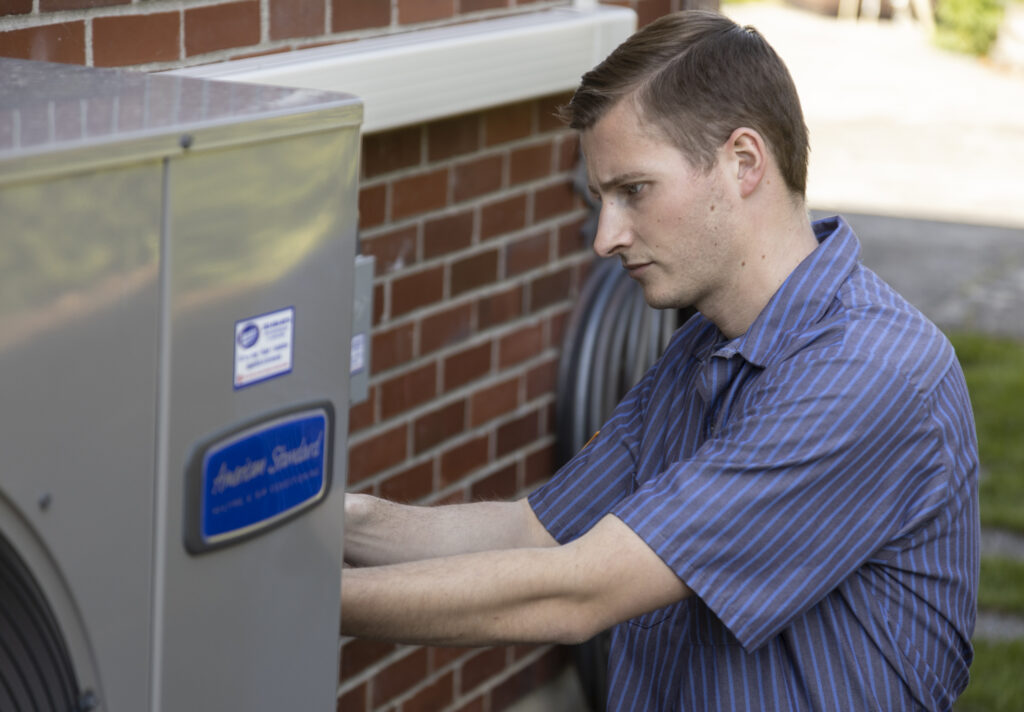
Dirty Filters, Coils, and Outdoor Units
In Olympia, pollen, wildfire debris, and everyday dust can clog your system fast, especially in the summer months. A dirty air filter or a clogged air filter restricts airflow.
This reduces your system’s efficiency and can lead to other issues like frozen coils and poor cooling performance. A dirty filter is a common cause of restricted airflow and should be checked regularly.
Troubleshooting checklist:
- Inspect and replace your air filter if it is dirty, gray, or clogged
- Clear leaves, branches, and yard debris from around your outdoor condenser unit. Also, make sure to keep the condenser coil, condenser coils, and outdoor coil clean to maintain system efficiency.
- Check that the condenser fins are not bent or clogged with dust
- Check for dirty condenser coils and clean them as needed, as dirty condenser coils can obstruct airflow and reduce cooling performance.
- Avoid covering outdoor units with tarps or furniture
A dirty condenser can also obstruct airflow and reduce your AC’s cooling performance. If you have not had a filter replacement since spring, it is a good time to swap it out.
This is especially important if your home is near wildfire activity or has been sealed tightly due to outdoor smoke concerns. Dirty filters and dirty condenser coils can both lead to restricted airflow and reduce your system's ability to cool your home.
Electrical Issues and Safety
Electrical issues are another frequent culprit when it comes to AC problems, and they can pose serious safety risks if not handled properly. Problems such as faulty wiring, blown fuses, or tripped circuit breakers can prevent your AC system from operating or cause it to shut down unexpectedly.
If you notice that your AC isn’t turning on, or if it stops working after a power surge, electrical issues could be the root cause. It’s important not to attempt electrical repairs yourself, as this can be dangerous. Instead, contact a licensed HVAC professional who can safely diagnose and resolve any electrical issues, ensuring your system is both safe and reliable.
Signs of Low Refrigerant or a Frozen Coil
If your air conditioner is running but only blowing room-temperature air, the issue could be more complex. Low refrigerant, refrigerant leaks, or a frozen evaporator coil often require a licensed technician to diagnose and repair.
It's important to have enough refrigerant and maintain proper refrigerant levels for your system to effectively cool your home. Without adequate refrigerant, your AC cannot remove heat efficiently, leading to poor performance.
Watch for these signs:
- The AC unit is running continuously without cooling
- Ice buildup on refrigerant lines or indoor coils (often a sign of low refrigerant levels or a refrigerant leak causing a frozen evaporator coil)
- Water is pooling near the air handler
- Unusual hissing or bubbling sounds
The evaporator coil plays a crucial role in the refrigeration cycle by absorbing heat from indoor air. A frozen evaporator coil can result from low refrigerant, a refrigerant leak, or airflow problems, such as a dirty air filter. These symptoms typically indicate a drop in pressure within the system, often caused by a leak or airflow restriction.
The compressor circulates refrigerant throughout the system to remove heat from your home, and any disruption in this process can lead to system inefficiency or even a complete system shutdown. Left unchecked, this can damage the compressor or cause your system to shut down entirely.
DIY Troubleshooting Tips
Before you pick up the phone to call for AC repair, there are a few simple troubleshooting steps you can try on your own. Start by double-checking your thermostat settings to make sure they’re correct and set to cool.
Next, inspect your air filter. Dirty air filters are a common cause of poor cooling and can restrict airflow throughout your home.
If the filter looks clogged or dusty, replace it with a new one. You can also take a look at your outdoor condenser unit. Gently clear away any leaves, grass, or debris that might be blocking airflow, and use a garden hose to rinse off dirt from the coils if needed.
These quick checks can often resolve minor issues and help your AC system cool more effectively. If the problem persists after these steps, it’s best to call a professional HVAC technician for a thorough inspection.
Preventing Future Issues
Keeping your AC system in top shape doesn’t just improve comfort. It can also save you money and prevent unexpected breakdowns. Regular maintenance is key: schedule annual tune-ups with a trusted HVAC technician to catch potential problems early.
Make it a habit to replace dirty air filters every few months, especially during heavy use, and keep the area around your condenser unit clear of debris. Good insulation in your home can also help your cooling system work more efficiently. And always be mindful of electrical issues.
If you notice flickering lights, tripped breakers, or other warning signs, call a professional right away. With these simple steps, you can help your AC system deliver cool, reliable air all summer long.
When It’s Time to Call a Technician
If basic troubleshooting does not resolve the issue, do not wait for the problem to worsen. Professional diagnostics can identify refrigerant issues, worn components, or electrical failures that are not visible to the untrained eye.
Major problems, such as a faulty compressor, compressor issues, or electrical problems, can severely impact your air conditioning system and require professional attention.
It is time to call a local expert if:
- Your AC is running, but your home is not cooling down
- The system turns off after only a few minutes
- There are loud or unfamiliar noises coming from your outdoor unit
- The thermostat and breakers are set properly, but the AC will not start
- You notice a decline in system run performance, or your central ac, central air conditioning system, or air conditioning system, is not operating efficiently
For expert help from trusted Olympia HVAC technicians, schedule an appointment today.
Olympia HVAC Pros Ready to Help Today
At Mercurio’s Heating & Air Conditioning, we know how important a reliable AC system is during peak summer. Our team specializes in fast, affordable air conditioning repair in Olympia and throughout Thurston County. Whether your issue is related to refrigerant, airflow, or outdoor unit function, we are here to help you stay cool and comfortable.
Upgrading to a newer, high-efficiency system can make your home cooler and more comfortable while also helping you save money on energy bills and repairs.
Our technicians are familiar with local housing styles, regional weather patterns, and wildfire-related maintenance needs. We offer same-day service, seasonal tune-ups, and full diagnostics to get your system back in shape quickly and efficiently.
Regular service and upgrades not only improve performance but also help you save money over time. If your AC struggles to reach your desired temperature, poor insulation could be the culprit. Our team can help address insulation issues to enhance your system’s efficiency and comfort.
Need cooling help now?
Schedule your HVAC inspection or book service with our Olympia HVAC technicians
Frequently Asked Questions
Why is my AC running but not cooling my house?
This often indicates a dirty air filter, low refrigerant levels, or blocked airflow. Start by checking your thermostat and filter, then call a technician if those do not resolve the issue.
What temperature should I set my thermostat to in summer?
Most Olympia homeowners set their thermostat to 72–75°F. If your home is still not cooling, try lowering it by 5 degrees to see if the system responds.
Can I fix a frozen coil myself?
You can turn off the system and let it thaw, but frozen coils are often a symptom of more severe airflow or refrigerant issues. It is best to schedule an HVAC tune-up to identify the root cause.
